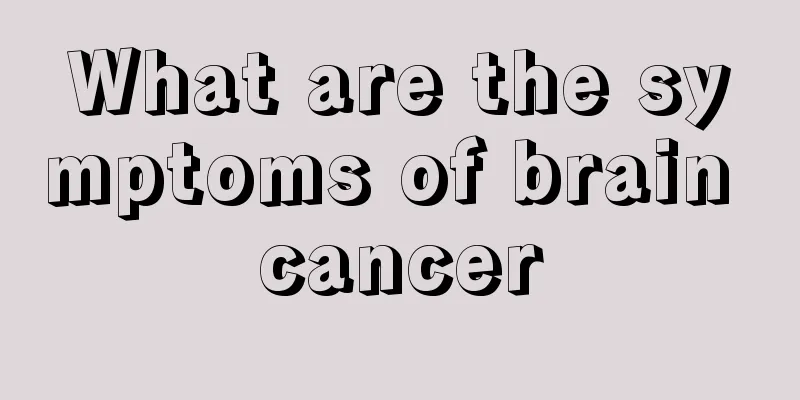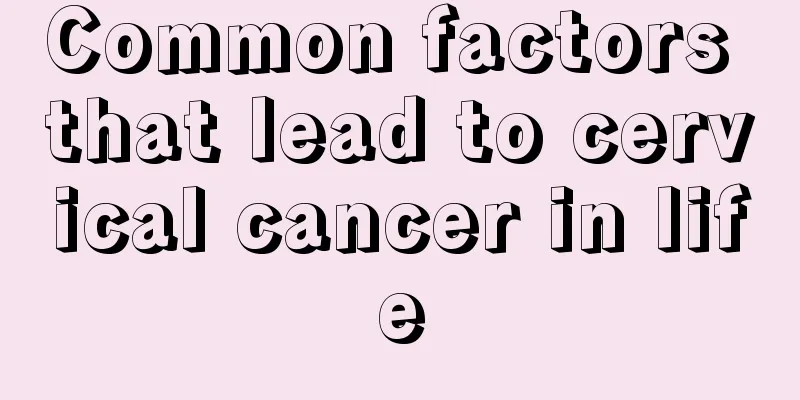What are the symptoms of brain cancer

|
Typical symptoms of brain cancer 1. Onset The disease usually progresses slowly, with a course ranging from 1 to 2 months to several years. Some cases may present with acute or subacute onset, and may even result in stroke. The latter is mostly due to the high degree of malignancy of the tumor, rapid progression, or secondary changes such as hemorrhage, necrosis, and cystic changes in the tumor. 2. Increased intracranial pressure Symptoms include the "three main signs", namely headache, vomiting and optic disc edema. 3. Focal symptoms It depends on the location of the intracranial tumor. Common focal symptoms include motor and sensory dysfunction, manifested as limb weakness, paralysis and numbness, convulsions or epileptic seizures, visual impairment, visual field loss, olfactory impairment, sensorineural deafness, language impairment, imbalance, intellectual decline, mental symptoms, endocrine disorders, developmental abnormalities, etc. They often form different syndromes. The exact cause of intracranial tumors is not yet fully understood. Possible causative factors include: 1. Oncogenes and genetic factors Tumor molecular biology studies have shown that there are two types of genes that are closely related to the occurrence and development of tumors. The activation and overexpression of oncogenes induce tumor formation, while the presence and expression of anti-cancer genes help inhibit the occurrence of tumors. 2. Physical factors Radiation can increase the risk of tumor development. 3. Chemical factors The main chemical factors are anthracene compounds, such as methylcholanthracene, benzene, methylnitrosamine, ethylnitrosamine, etc. Among them, ethylnitrosourea is particularly prone to carcinogenesis during the perinatal period. 4. Oncogenic viruses After the virus invades the cell, it changes its genetic characteristics, causing it to proliferate uncontrollably. Treatment principles: surgical treatment is the main method, supplemented by radiotherapy, chemotherapy, etc. Diet adjustment: Brain tumor patients should adopt a high-protein, high-vitamin and high-calorie diet. Protein in the diet can be obtained from animal foods and bean foods, such as fish, eggs, milk and bean products. High-vitamin foods can be eaten more fresh vegetables and fruits, such as apples, oranges and various green leafy vegetables. High-calorie foods can be obtained from easily digestible carbohydrate foods, such as chocolate. |
<<: What is the clinical knowledge about bladder cancer?
>>: Effective ways to diagnose bladder cancer at early stage
Recommend
What to do if your eyes are burned
If you accidentally get an eye burn in your life,...
What are the steps and methods of scalp massage
As we all know, the meridians and acupoints on th...
If the mother has stomach cancer, will it be inherited?
Is gastric cancer hereditary? I believe this is t...
What are the symptoms of steatorrhea?
Steatorrhea is caused by various reasons in the b...
Why do women blush?
There are many reasons why women blush. The physi...
Avocado is too hard
Avocado is a very common fruit in our daily life,...
What is the correct way to do the splits
Many friends who love dancing or fitness are more...
Is temporal bone fracture serious?
Temporal bone fracture is actually not that serio...
How to deal with hole shoes rubbing your feet
Wearing a pair of beautiful shoes can make us loo...
Do eels have thorns?
The appearance of eel is similar to that of rice ...
The use of pyroalkali in life
Pyroalkali actually has many uses in daily life. ...
Is moxibustion useful for urethritis
The urethra is a very critical tissue in the urin...
Can I still straighten my teeth at the age of 40?
The age of 40 is quite confusing. With the arriva...
What are the symptoms of skin fibroma?
Dermatofibroma is a common benign skin lesion, us...
The 5-year recurrence rate of bladder cancer
Bladder cancer is a relatively common malignant t...









